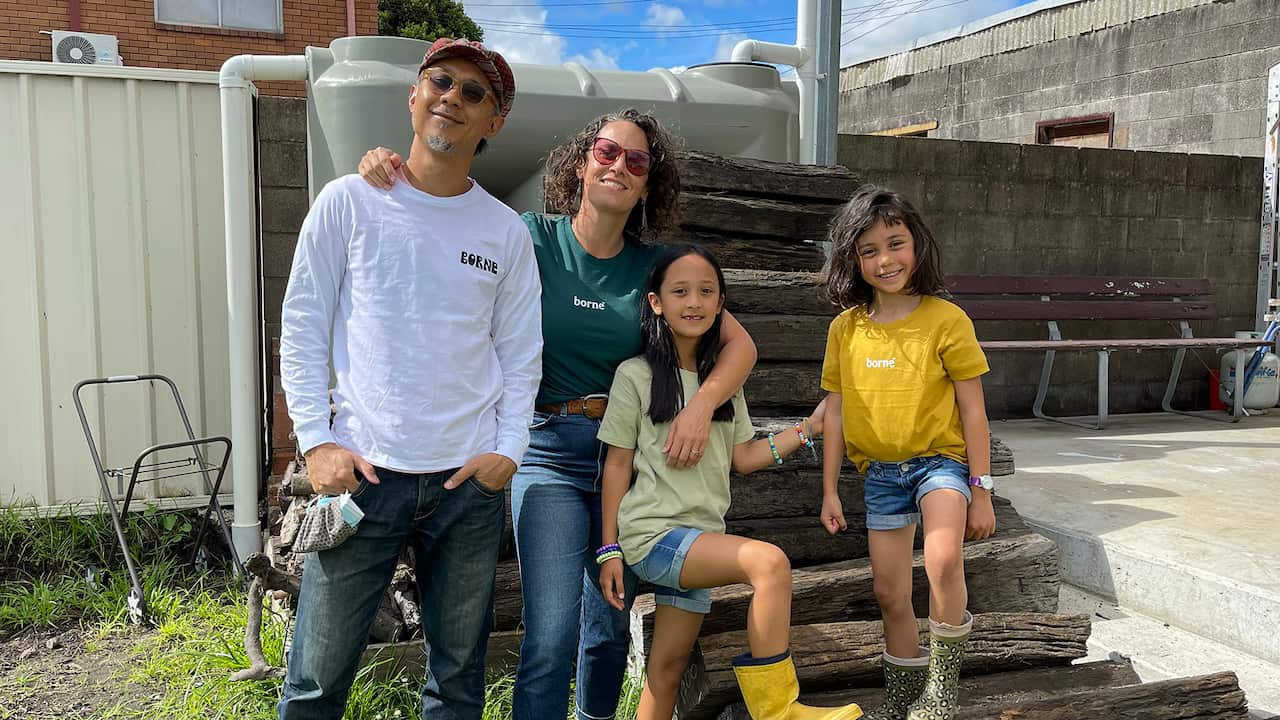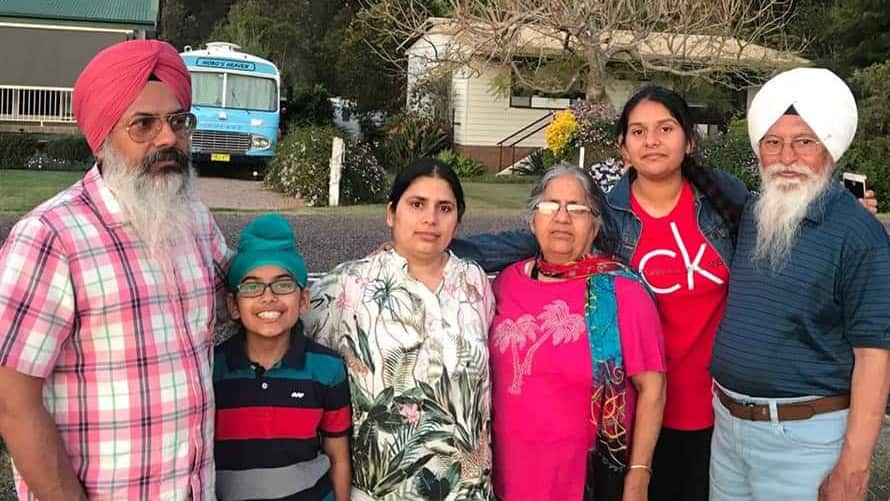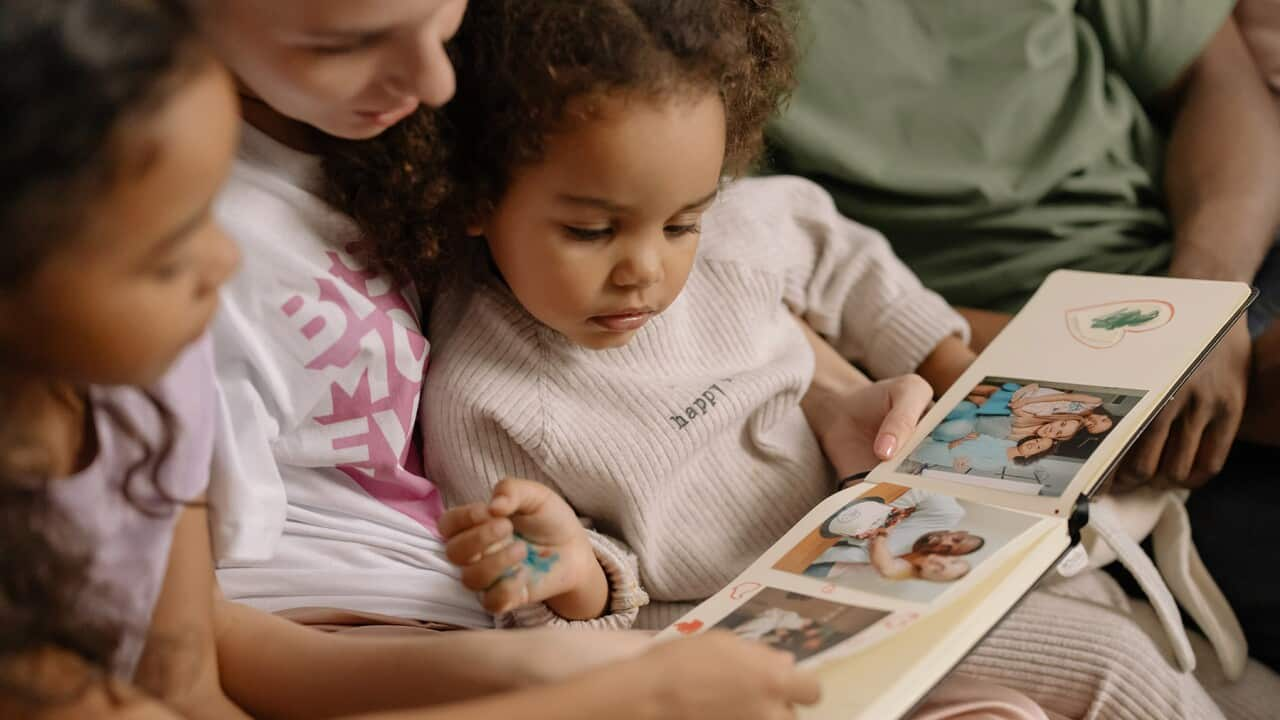The past two years have been challenging as we haven’t been able to socialise and get together as we normally would. People with strong connections overseas have felt an even greater sense of disconnection from their extended families and home countries.
Doing family across the borders
Thanks to digital technology though, it’s now easier to create our own ‘global villages’ to help us raise our children bilingually.
In episode six, the final episode of My Bilingual Family, we talk to researcher Ana Sofia Bruzon, who points out that the idea of ‘family across the borders’ has changed.
“The availability of mobile devices allows for instant video calls… we can be connected with family back home anywhere, anytime,” Ms Bruzon said.
Her five-year-old son connects with his grandparents almost every day. And he plays with them ‘through’ the screen, often accompanied by his favourite superhero, Spiderman.
This transnational play happens exclusively in Spanish, Ms Bruzon’s mother language.
“My son is sort of forced to speak because he knows that grandpa, for instance, doesn't understand English. So it is sort of playing through the screen," she said.
"What they cannot do in real life, you know in the flesh, they do it through the screen.”
Travelling to the home country
As national borders begin to open and travel becomes possible again, many families have been able to reunite.
From a language point-of-view, being in the home country is an important opportunity for children to be in a truly immersive language environment.
For Katerina Skoumbas, who we talked to in episode two of My Bilingual Family, spending time in Greece as a nine-year-old was life-changing and pivotal to her maintaining her fluency in Greek.

“That trip left a huge mark on me, and really laid a foundation of my love, for my own heritage, and my own ancestors and culture,” she said.
Ms Skoumbas was born and raised in a Greek-speaking household in Australia, so is second-generation, and is now bringing up her two daughters bilingually.
Another mother, Hagar Cohen, is planning to spend time back in Israel soon with her two kids.
Her children drifted away from Ms Cohen’s mother language Hebrew, and nowadays speak to her exclusively in English, much to her dismay.
Her plan is to “put them in Hebrew school and have them surrounded and immersed with the language".
As she explains, it’s been difficult to raise them in language in Sydney.
“We don't have a big Jewish Israeli community around us. There's really no one else speaking Hebrew with my children apart from me,” Ms Cohen said.
The importance of resources
One unexpected benefit of the pandemic has been readily available online language resources online.
It’s now possible to view programs dubbed in language through streaming services including Netflix, watch YouTube videos, use language learning apps such as DuoLingo, and join Facebook groups.
The popularity of online language classes has also shot up.
All of these resources have been developed and made available by the global language community you’re a part of, so they’re culturally appropriate.
They effectively provide excellent opportunities for children to use and enjoy language, and ensure your mother language is an everyday feature of your family’s life.
But all of these are screen-based resources, and some parents are anxious about their overuse.
One of our listeners, Anna from Adelaide, wrote to us about just this anxiety.
She’s wondering how families cope with finding age-appropriate language programs because she felt “pressure to not use TV” in raising her two-year-old with Russian.
It’s true that parents are often told they should limit their children’s screen time.
But when it comes to bilingual parenting, it depends on how you use it.
Ms Bruzon's son not only plays across the screen with his grandparents, but began online Spanish classes during the lockdown.
Children engage a lot with technology, so why not use the technology for language learning?
She advocates actively watching shows together with your kids, because that gives them an opportunity to engage with you around language.
And it turns screen time, which is often seen as a passive activity, into an active engagement with your mother language and with you.
Image
How not to become ‘the graveyard of languages’
Soon after we launched this podcast, we began to receive a lot of feedback from listeners wanting to share their own experiences of bilingual child-rearing.
In a way, My Bilingual Family became a kind of virtual village as well.
The common theme in the responses was that hearing other people’s stories in the podcast validated listeners’ own feelings of frustration, guilt that they weren’t doing enough, or anxiety that they weren’t doing the right thing.
One listener, Shirlaine from Melbourne, said she felt responsible for the loss of languages.
“When my daughter was born we tried to do a blend of Cantonese and English… But now that she's three and talking about quite complex ideas, we have really struggled to speak any Cantonese - we ourselves simply don't have the language or the brainpower or the sleep!" she said.
"Are we destined to lose more and more of our second languages with the passing of generations?”
These ideas were explored in episode five of My Bilingual Family.
We spoke to parents Bhupinder and Harminder about their experiences raising children with Punjabi.
As dad Harminder says, “this next generation, it will be finished… In the next 20 years it will be very hard, unless or until they go to Punjab, and stay over there.”

Professor Ingrid Piller, an expert in multilingualism, responded to Harminder’s comments by explaining that people were right to be somewhat pessimistic about the prospects of maintaining their language in the long term.
In fact, the trend in Australia is that by the third generation, migrant languages will most likely be lost.
Countries like Australia built on immigration are often referred to as a ‘graveyard of languages’, as she explains.
It was understandable that parents doing their best to pass on language might feel disheartened by this trend, she said.
“...because the point of language is for us to connect and to communicate,” Professor Piller said.
“So if you are doing that as an individual it's like one hand trying to clap... (of course) you need at least another hand to clap with.
"So that's really where a language policy, strong languages in schooling come in.”
One of the key themes to emerge from talking to families and language experts in the six episodes of My Bilingual Family is we all need at least another hand, and even many more hands to clap with.
To prevent becoming a ‘graveyard of languages’, we need to ensure we have a village for support, and these days, even a global one.
My Bilingual Family is hosted by Dr Elaine Laforteza. Listen to the My Bilingual Family podcast in Apple Podcasts, Google Podcasts, Spotify, or the SBS Radio app.
